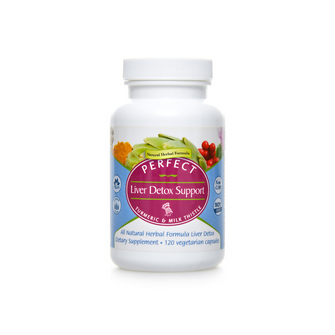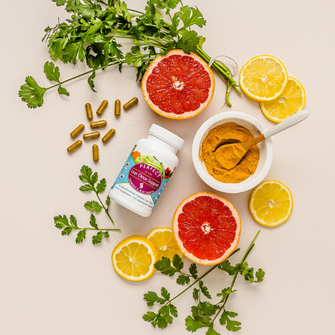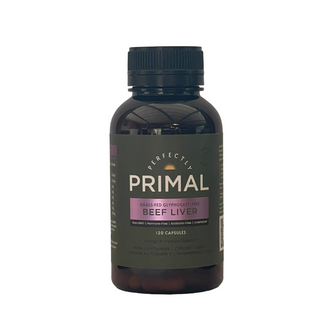Categories
The Marvel of the Human Liver: Functions and Tips for Optimal Health
The human liver is an extraordinary organ, often under-appreciated for its vital role in maintaining our overall health. This multitasking powerhouse performs hundreds of functions crucial for life. In this article, we’ll explore the myriad roles of the liver and provide actionable tips on how to support it for optimal health.
The Multifaceted Functions of the Liver
1. Metabolism and Energy Production
The liver is central to the body's metabolic processes. It converts carbohydrates, fats, and proteins into energy and vital substances. This includes:
- **Glycogen storage and glucose release**: The liver stores glucose in the form of glycogen and releases it into the bloodstream when needed.
- **Protein synthesis**: It produces essential proteins such as albumin and clotting factors.
- **Fat metabolism**: The liver breaks down fats and produces cholesterol, which is necessary for building cell membranes and hormones.
2. Detoxification
One of the liver's primary functions is detoxification. It filters blood, removing toxins and waste products. This includes:
- **Breaking down alcohol**: The liver metabolises alcohol to prevent its toxic effects.
- **Processing medications**: It modifies and breaks down drugs, making them easier for the body to excrete.
- **Neutralising harmful substances**: The liver converts ammonia, a byproduct of protein metabolism, into urea, which is excreted by the kidneys.
3. Bile Production
The liver produces bile, a digestive fluid essential for fat digestion and absorption. Bile is stored in the gallbladder and released into the small intestine to aid in the breakdown of dietary fats.
4. Storage of Vitamins and Minerals
The liver stores several essential vitamins and minerals, including:
- **Vitamins A, D, E, K, and B12**: These vitamins are crucial for various bodily functions, from vision to blood clotting.
- **Iron and copper**: These minerals are important for red blood cell production and overall metabolic processes.
5. Immune Function
The liver contains immune cells known as Kupffer cells, which help defend the body against pathogens. It also filters out bacteria and toxins from the blood, contributing to the body's immune defence system.
Supporting Liver Health: Tips and Strategies
Given the liver's vital functions, maintaining its health is crucial. Here are some evidence-based strategies to support your liver:
1. Maintain a Healthy Diet
A balanced diet rich in fruits, organic vegetables, lean proteins, and organic whole grains supports liver function. Specific dietary tips include:
- **Eating fibre-rich foods**: Fibre aids in digestion and helps the liver process and eliminate toxins.
- **Incorporating healthy fats**: Omega-3 fatty acids, found in fish, flaxseeds, and walnuts, can reduce liver fat levels and inflammation .
- **Limiting sugar and refined carbs**: Excessive sugar and refined carbs can lead to fat accumulation in the liver.
As part of a healthy diet, one may wish to incorporate supplementation to help fill in nutrient gaps. There are certain supplements that can help support the liver on top of eating a whole food, balanced diet and these include a good liver detox support supplement, a premium quality beef liver supplement, a clean greens supplement and a good quality organic chlorella supplement.
We stock all of these in the range so please refer to our recommendations (to the side if on a desktop or to the bottom if on a mobile or tablet device). You can also click on the links above.
2. Stay Hydrated
Drinking plenty of water helps the liver function efficiently by aiding in detoxification and nutrient transport.
3. Exercise Regularly
Regular physical activity can help maintain a healthy weight, reducing the risk of non-alcoholic fatty liver disease (NAFLD). Exercise improves overall metabolic health, which is beneficial for liver function .
4. Avoid Toxins
Minimise exposure to environmental toxins and chemicals. Use protective gear when handling chemicals, and opt for natural cleaning and personal care products when possible.
5. Moderate Alcohol Consumption
Excessive alcohol intake can lead to liver damage and diseases such as cirrhosis. Limiting alcohol consumption is essential for liver health.
6. Regular Health Check-ups
Regular medical check-ups and liver function tests can help detect liver issues early and ensure timely treatment.
7. Use Medications Wisely
Take medications only as prescribed and be cautious with over-the-counter drugs and supplements. Some can have adverse effects on the liver.
Conclusion
The liver's importance to overall health cannot be overstated. By understanding its functions and adopting lifestyle habits that support its health, you can ensure that this vital organ continues to perform optimally. Incorporating a healthy diet, regular exercise, adequate hydration, and mindful consumption of substances can go a long way in maintaining liver health and, consequently, your overall well-being.
For more in-depth information, consider reviewing the following studies:
- [Role of diet in non-alcoholic fatty liver disease: a review](https://www.ncbi.nlm.nih.gov/pmc/articles/PMC5417485/)
- [Exercise and its effects on the liver: current concepts](https://www.ncbi.nlm.nih.gov/pmc/articles/PMC6166113/)
- [Alcohol consumption and liver disease: a global perspective](https://www.ncbi.nlm.nih.gov/pmc/articles/PMC5741119/)
By staying informed and proactive, you can help ensure your liver remains healthy and functional for years to come. 🙌🏼
Disclaimer: These are only potential benefits. This article is purely intended for informational purposes and not as advice. One must seek proper professional advice from their trusted health practitioner








